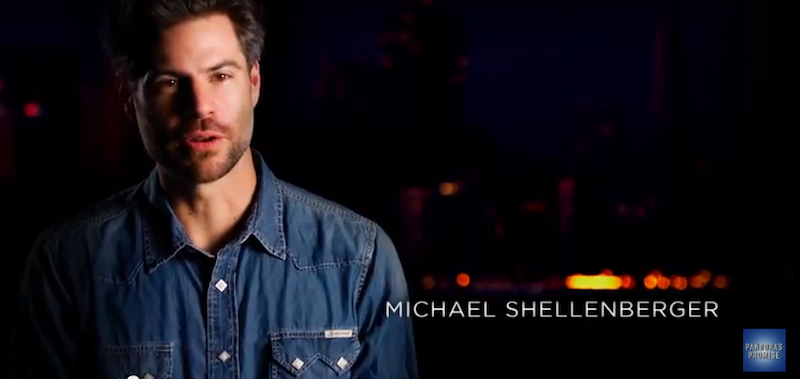Rebranding Pandora: Film by Oscar-nominated director shows nuclear is the way


Question: What do you get when five former anti-nuclear zealots and well-regarded environmentalists come out of the closet and together back nuclear power?
Answer: Pandora's Promise, the best environmental feature film since An Inconvenient Truth, and one that puts across its own squirmy, inconvenient truths: Only nuclear can save the world from the climate change scourge of CO2-emitting fossil fuels because unlike renewable energy, nuclear can provide large, steady, round-the-clock doses of CO2-light electricity; and the media, with great help from the fossil fuel industry and green movement, has for decades fed the public an unconscionable barrage of anti-nuclear propaganda.
Oscar-nominated documentary filmmaker Robert Stone, himself a newborn nuclearite, expertly weaves together decades of footage of everything from atomic bomb tests to Chernobyl, Fukushima and modern day nuclear protests to show how the dangers of nuclear power have been greatly misconstrued and wrongly linked with fatalities.
His montage of 1950s era nuclear detonations from the U.S, Russia and China is itself worth the price of admission, and parts of the movie work as a wonderful period piece for anyone nostalgic for the duck and cover days when father knew best (see trailer below).
But the stars of his movie are the five environmentalists who speak to the camera in between the historical clips. Perhaps best known among them is Steward Brand, the 1960s, 70s and 80s countercultural hero whose green cred includes founding the Whole Earth Catalog, a bible of sustainable living.
"Can you be an environmentalist and pro-nuclear?" asks Brand, who provides his own answer. "In light of climate change, can you be an environmentalist and not be pro-nuclear?"
Fellow environmentalist and nuclear convert Michael Shellenberger scolds the environmental movement for its small mindedness, noting, "To actually believe in nuclear power was by definition to be a dupe."
British environmental campaigner and journalist Mark Lynas agrees, recalling how, before he flipped his position on splitting atoms, "I had a sneaking suspicion that nuclear was going to have be part of the solution." Richard Rhodes, a Pulitzer winning journalist, confesses that before he switched allegiances, "I avoided looking at the whole picture and only looked at the questions that seemed to prove that nuclear power was dangerous."
On the film's promotional web site, the director himself weighs in. Stone, whose 1988 movie Radio Bikini indicted U.S. thermonuclear bomb testing on Bikini Atoll and earned an Academy Award nomination, notes, "It's no easy thing for me to have come to the conclusion that the rapid deployment of nuclear power is now the greatest hope we have for saving us from an environmental catastrophe."
The film - which I first flagged late last year as it headed to Robert Redford's Sundance Festival - has a couple of forgivable shortcomings.
Pandora does not exactly present a balanced argument. Stone uses an unprepared anti-nuclear advocate -- Helen Caldicott - as a convenient foil throughout the movie, easily irradiating her seemingly flimsy arguments into laughable dust. But balance is not the point. Critics might say that Pandora teeters on propaganda, but goodness knows that the anti-nuclear crowd has thrown around plenty of that.
Stone could also have made a stronger case for alternative forms of nuclear power that could replace conventional reactors and usher in designs that are less costly, more efficient, useful as industrial heat sources as well as for electricity, that make use of nuclear waste and that can be even safer than today's technology. While Pandora does promote a reactor type known as a "fast reactor," it gives short shrift to other possibilities like thorium fuel, molten salt and pebble bed reactors, and fusion.
The good news: That leaves open the possibility for Pandora's Next Promise. Go for it, Mr. Stone. And thanks for the first one.
Here's a trailer:
Photo of Michael Shellenberger is a screen grab from the Pandora's Promise trailer.
Note: Pandora's Promise has staggered openings in cities around the U.S. To see when it's coming to a theater near you, go to the film's website, click "menu" and then click "see the film."
More atomic marquees:
This post was originally published on Smartplanet.com